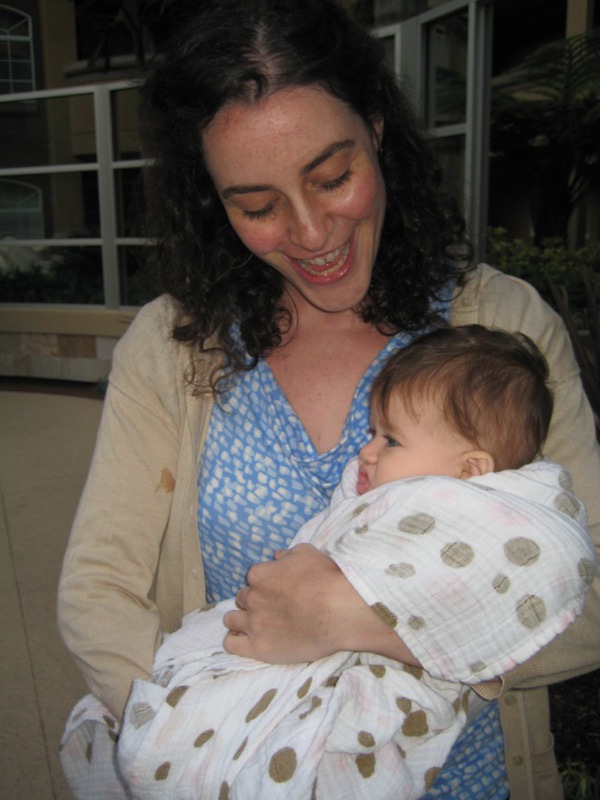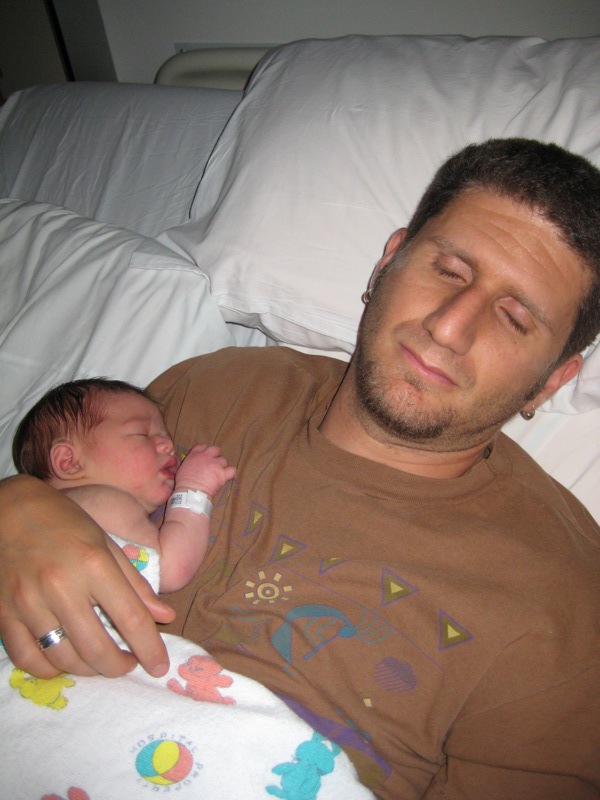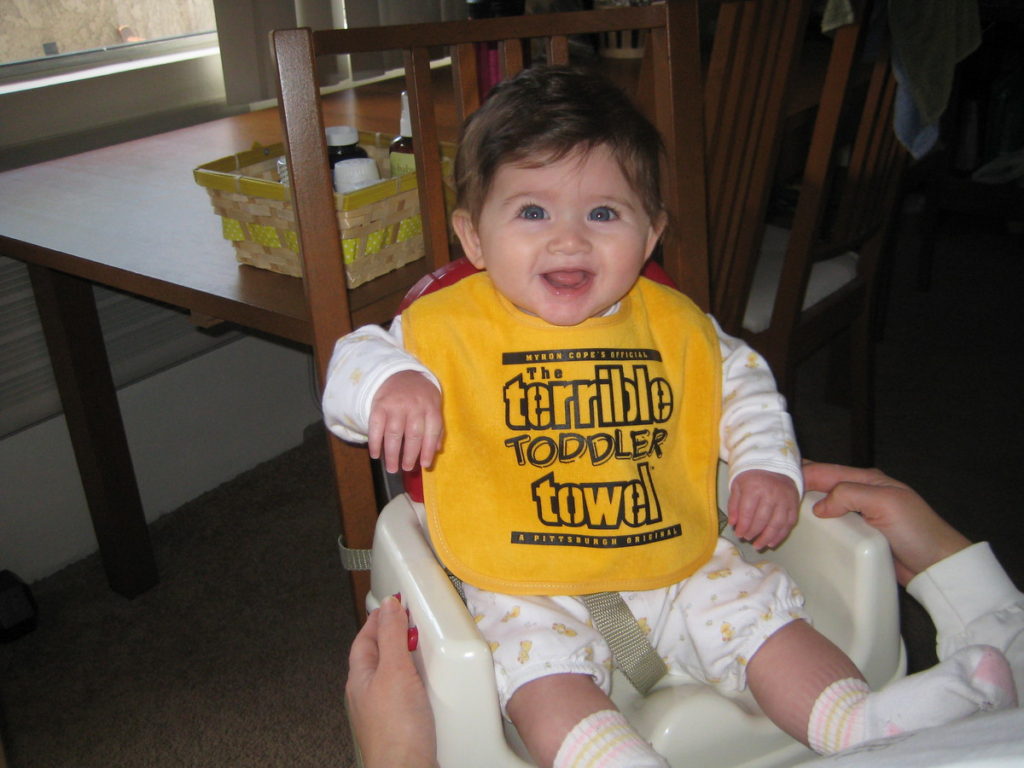Ten years ago, I was living in Los Angeles when I got pregnant for the first time. It was a planned pregnancy and my husband and I were excited to start the next phase of our life, but I was also scared. I was aware of my low tolerance for pain and therefore had no illusions about an unmedicated birth. I wanted to be realistic about the day I had been both dreaming about and fearful of for a long time.
While doulas can’t foresee every inevitability, they know the birth process and, more importantly, you and your partner well enough to know what help you might need and when.
In 2009, many of my friends in LA had used or were thinking about using birth doulas, but I was under the impression that doulas were only for the kinds of moms who ate only organic food, named their children after fruits, and eschewed medication and interventions in the birth process.
When my healthcare provider—a tough-as-nails labor-and-delivery nurse turned midwife—told me it was unlikely she would be in the delivery room with me (like many people giving birth, I would see whoever was on duty from my practice), I started to investigate what hiring a doula would mean for me and my husband. I learned that while doulas can’t foresee every inevitability, they know the birth process and, more importantly, you and your partner well enough to know what help you might need and when. In the end, hiring a birth doula was the best decision we could have made.

My husband and I had no family and few close friends in LA—certainly no one we would expect to leave work, or bed, or brave rush-hour (and all-other-hour) traffic to be with us just because my water broke. Becoming a mom and birthing a child made me nervous for so many reasons, but the idea that no one in the delivery room would know us or what was important to us seemed to be one thing I could control. Thanks to our no-deductible health insurance, we were able to dedicate some of our resources to hiring a doula.
Though doulas were fairly common in LA, explaining to my friends and relatives “back east” that we were going to pay someone who was not a medical professional to be with us during my labor—and in the room with us when I delivered our child—was not always easy.
We heard all kinds of pushback. Some people thought we should save our money for the inevitable expenses we would incur with a new baby. Others said they had done it without a doula, so why couldn’t we? Wasn’t my husband supposed to be my non-medical support person? We had become “too LA,” people told us. Even my midwife frowned on our decision, claiming that doulas were an unnecessary expense and, in her opinion, could insert themselves into decisions where they didn’t belong, complicating the patient-provider relationship.
By the time I went into labor, our doula had become a trusted member of our birth team, but I had no idea how we would be tested over the next 36 hours.
I was undeterred. As much as I loved my husband, he had even less familiarity with birth than I did. While I knew he would want to support me, I couldn’t imagine what I might need. It seemed potentially detrimental to our relationship, especially on the cusp of such a major shift, to expect him to figure out what I would need when I didn’t even know myself. Somehow birth culture had shifted from keeping men in the waiting room—the standard when my husband and I were born—to expecting men to be the primary support person while their partners went through an often painful, occasionally harrowing, and always life-changing event. My few friends who had used doulas knew how invaluable their support was. I tried to explain that as best I could to the nay-sayers. As for my midwife, I reminded her she wouldn’t be in the room with me, so she didn’t get a say.

We interviewed four doulas and when we found “the one,” we knew. The conversation flowed easily between the three of us. We all shared a similar sense of humor and, as East Coast transplants, a similar sensibility. I was up front with her about my doubts that I could have an unmedicated birth. She explained to me that her role was to help me have the birth I wanted, regardless of what that looked like, as long as it was safe.
That was when our doula took my husband aside and told him it was his moment to shine. Nothing anyone had tried was getting my head where it needed to be, and she knew he was the only person who could do it.
Our work with her was a judgment-free zone. As my husband and I took all the prenatal classes offered by the hospital, our doula met with us throughout the pregnancy, both to get to know us and to supplement what we were learning at the hospital. She knew all the questions to ask to make sure we were as prepared as we could be, and she got to know us well enough to support us appropriately without getting in the way.
By the time I went into labor, our doula had become a trusted member of our birth team, but I had no idea how we would be tested over the next 36 hours.

Thanks to our doula’s guidance, I was able to labor at home for nearly 24 hours. I was relieved that she was with us and could use her years of expertise and intuition to know when we needed to go to the hospital. She was also with us when, nearly 12 hours after we got to the hospital—which included a misplaced epidural, a male doctor I had never met who was so checked-out that I wasn’t surprised when I learned he retired two weeks after my child’s delivery, and three hours of unproductive pushing—my labor stalled. That was when our doula took my husband aside and told him it was his moment to shine. Nothing anyone had tried was getting my head where it needed to be, and she knew he was the only person who could do it. She gave him a pep talk, which empowered him to give me an unconventional pep talk in turn—it’s possible the Pittsburgh Steelers (my home team) were involved!—and a few powerful pushes later, our daughter was born. The OB on duty wasn’t even in the room when she crowned.
No one hopes to have a 36-hour labor or an uncontrolled, difficult delivery, but when I did, it was our doula who helped my husband help me get through it. I can’t imagine doing it without him—or her.
Like this piece? Subscribe to our newsletter for real stories about women on their journey to motherhood.
